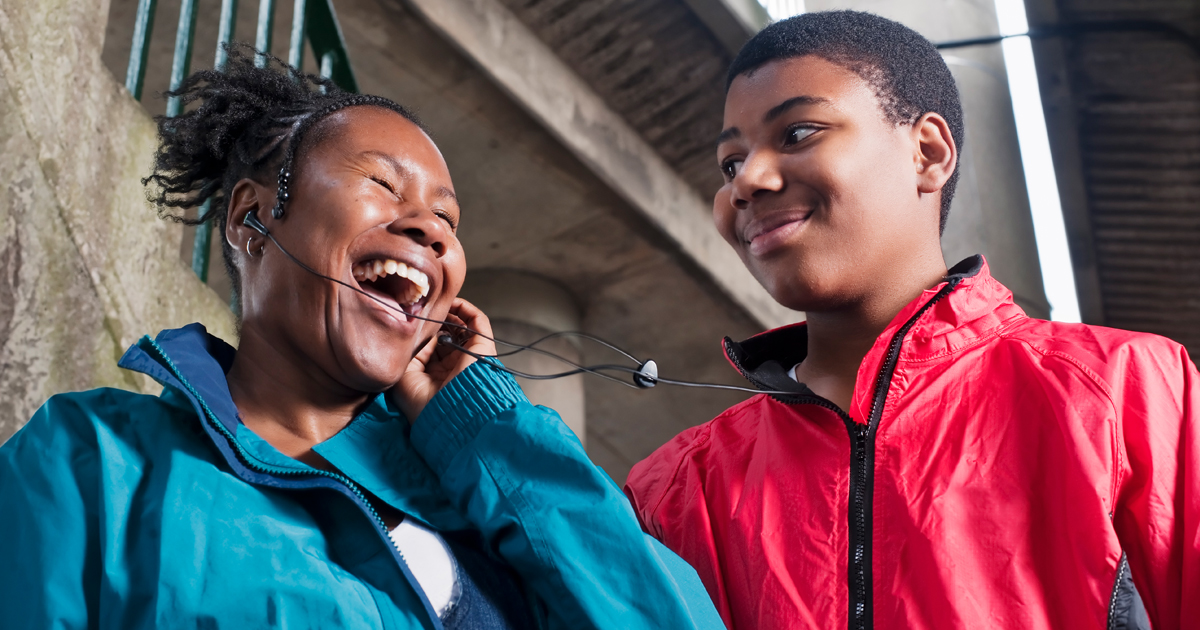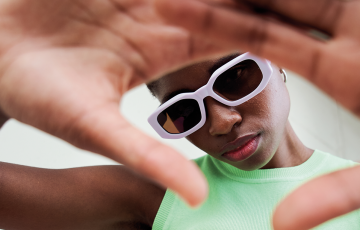Reasons why music is vital for child development

You sing lullabies to make your baby sleep, nursery rhymes with your toddlers to make chores fun and help them learn. Making and enjoying music can have many more benefits for your child…
Take it from the experts at the Brain and Creativity Institute in California. They found that musical experiences could make your child’s brain develop faster. Learning to play an instrument, says other research, can make a kid better at maths.
If that’s not enough reason to get your child interested in music, here’s more. It helps young ones learn sounds and the meaning of words. Dancing helps with motor skills and encourages kids to express themselves. Music strengthens memory skills – in adults, too.
Music is helpful if you want to teach your child about their culture – traditional songs and local instruments is an easy way to introduce them to their heritage.
And of course a love of music is something that can bring a lot of enjoyment throughout their life.
Here’s a guide to your musical journey with your child.
BABIES
Music enhances a child’s natural ability to figure out sounds and words. Babies will recognise a tune long before they can understand words. Loud music can overstimulate an infant, though, so the best baby music is soft, short and simple. See if you can make up a line about what you’re doing with them: dressing, eating or bathing.
TODDLERS
Toddlers love moving to music. Repetition helps with language and memory. Silly songs will make them laugh. Try throwing in a different word in a familiar song to surprise them and let them clap or tap out the rhythms.
Taste, textures and colours help to develop a child’s sense – and music does, too. Exposing your child to different types of music can help create more pathways between the cells in their brain.PRESCHOOLERS
Your preschoolers probably sing a lot. It can be softly to themselves as they play or at full blast (they’re keen to make some noise). Songs with words and melodies repeating are their favourites. They also like action songs and nursery rhymes about familiar things.
As kids learn to predict what comes next in the tune or words of a song, they’re building language and maths skills as well.
STARTING SCHOOL
The singalongs in the classroom that are about counting, listing items and events or spelling will fascinate them. They’ll also start telling you what music they like and don’t like.
They might want to take music lessons, but don’t force them. However, they must understand that practice will help them get better and not everything comes easily. Don’t let them give up after two lessons. Agree first on a try-out time, such as one term.

TEENS
Teens listen to music an average of 2.45 hours per day, one study found. They bond over it with friends and use it to set themselves apart from parents and younger kids. Don’t criticise their taste – rather ask what they like about it. This is a good time to get yourself earplugs, since they might want to start a band.
Their favourite songs might well have lyrics about love, drugs, sex and violence. Don’t ban it from their playlists. Ask what they think the artist wants to say. It could be a useful way to start a chat on serious topics. Ask about the music itself as well: which parts or instruments they like, what’s good about the vocals and so on. This helps them to appreciate music, as something you engage with, not just background noise.

TEACHING THEM ABOUT MUSIC
Your child’s age and personality plays a big part in which of these ideas they will like. So try them out and explore together.
- Playing along to a song is a great way to learn about volume, rhythm and how songs are put together. Doesn’t have to be a proper instrument – anything that sounds good when you hit it will do.
- Try activities based on instruments. For instance: When you hear the big drum, jump. Pretend you’re playing the guitar when you hear it.
- See what sound they can make with their mouths and ask them to describe it. This encourages active listening and also strengthens mouth muscles, which is good for speech development.
- Ask them to move to the music and copy their ideas. It shows you notice and value their creativity.
- Sing with them, even if you can’t hold a tune. Getting your kids involved in singing these songs can help them to understand things like pitch and tone.
- If you love music, show it. Don’t tell, show. Let them see you make music, listen to it or explore new sounds. Kids will become interested if they see your passion.
Sources: https://www.brighthorizons.com, https://www.portdiscovery.org, https://lifein12keys.com, https://www.whitelodge.education, https://scholarsarchive.jwu.edu, https://www.bbc.co.uk/teach/, https://www.playgroupnsw.org.au, https://childdevelopmentinfo.com.
Related articles

Latest Jet club magazine
We’ve got the latest trends, exciting prizes and exclusive savings just for you!
Jet Club will not pass your details to anyone else. By clicking the subscribe button you confirm you have read and agree to the Jet Club Terms and conditions and Jet Club Privacy Statement.
Subscribe

